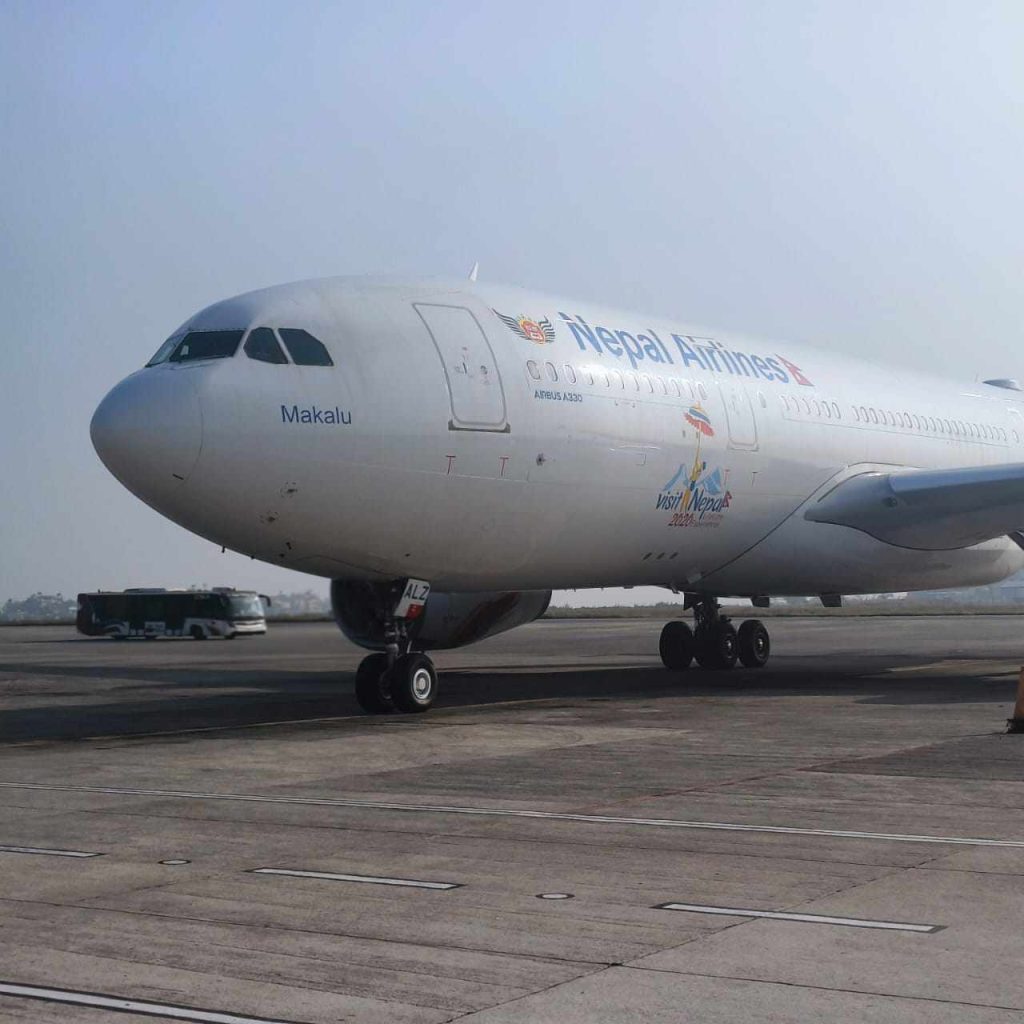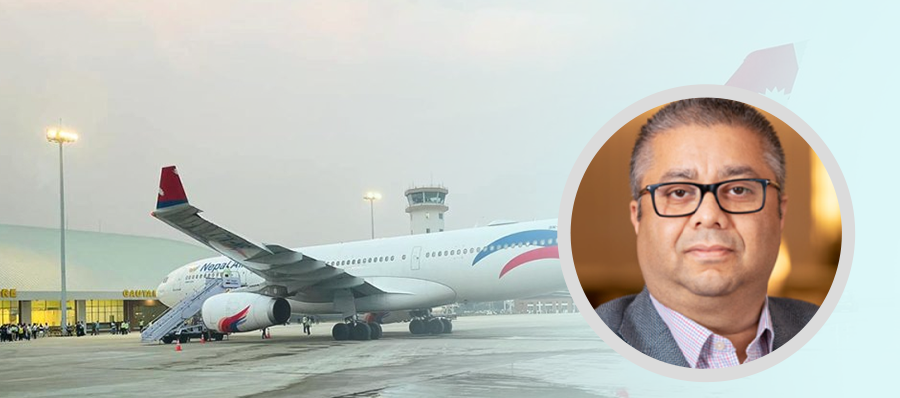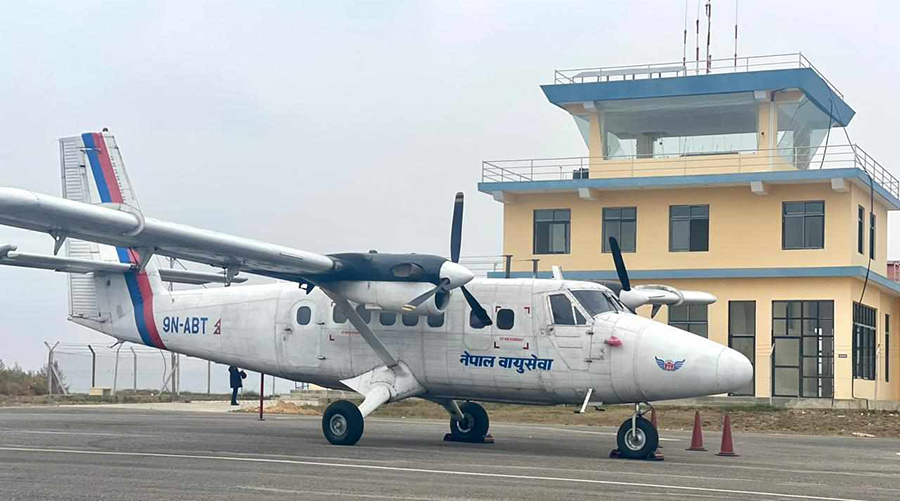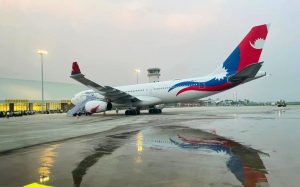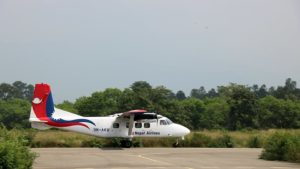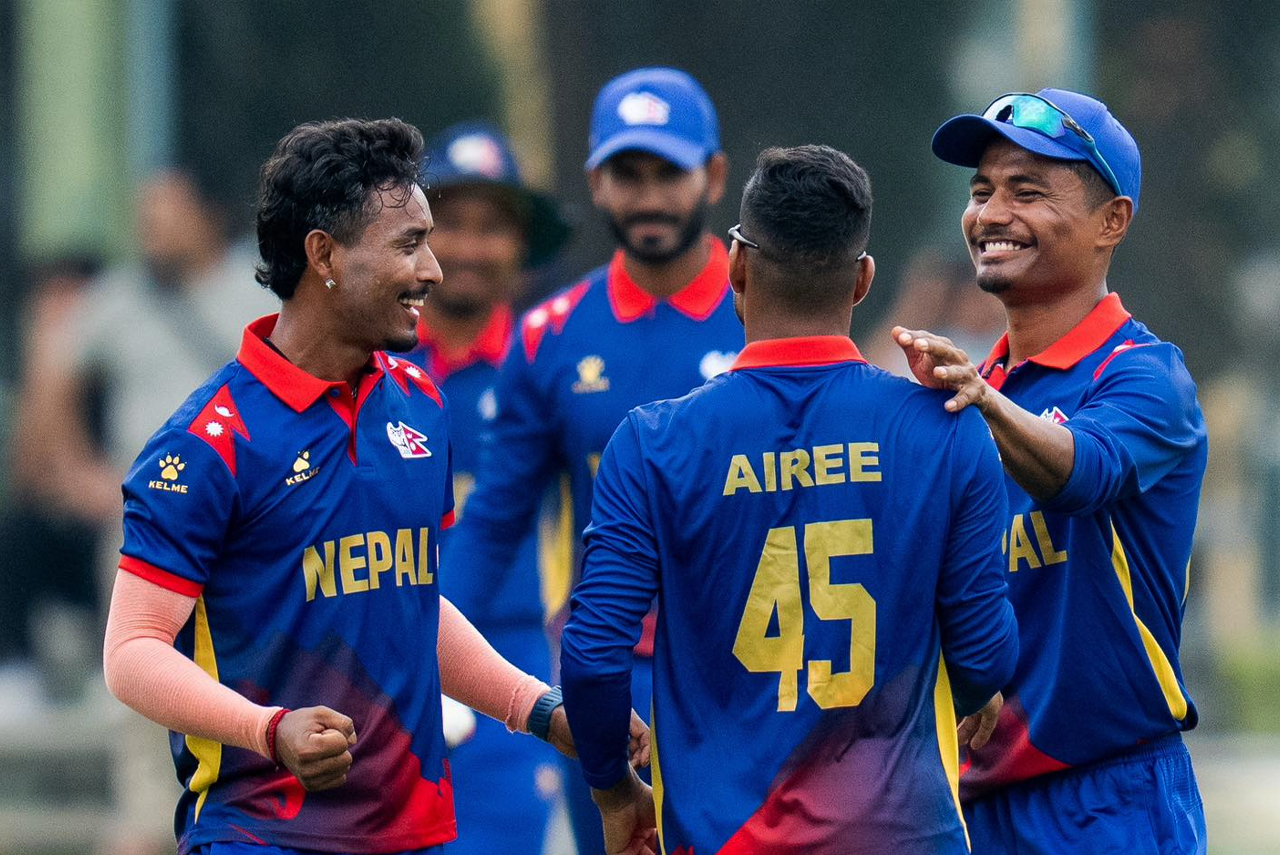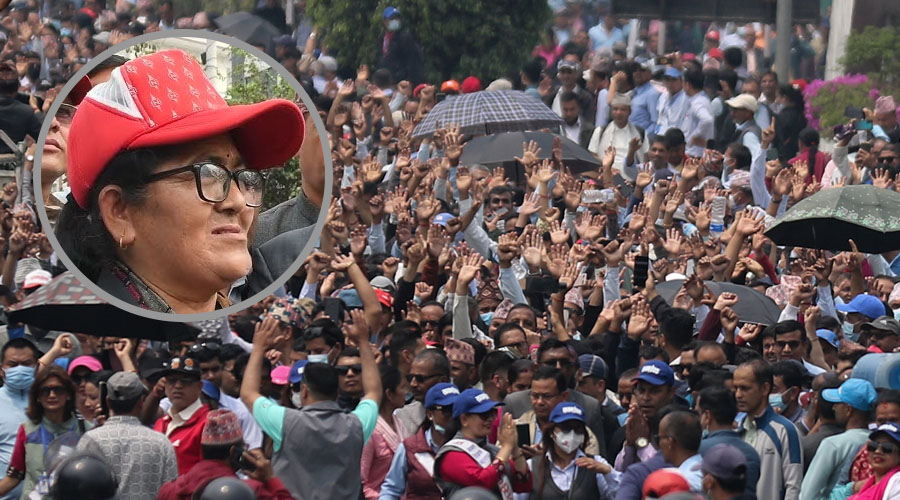
Nepal’s aviation sector has been hit with bad news after the European Union decided to continue its ban on Nepali airline companies in its sky.
On Thursday, the EU released a revised list of airlines flagged for flight safety concerns, encompassing all carriers registered with the Civil Aviation Authority of Nepal that are currently in operation.
Nepali airline companies have been part of this list since 2013, restricting them from operating in the airspace of European Union member countries. The primary basis for Nepal’s inclusion in the European Union’s blacklist in 2013 stems from its placement on the Serious Security Concern (SSC) list by the International Civil Aviation Organization (ICAO), a global regulatory body.
Despite addressing most of the concerns raised by ICAO and being removed from the Serious Security Concerns list since July 2017, Nepali airline companies continue to remain on the European Union’s blacklist. That had given hope that the EU would lift its ban on Nepali airline companies which was not to be.
Nepal’s national flag carrier, Nepal Airlines, is the hardest hit by these restrictions. European cities, once crucial hubs for long-distance flights from Nepal, have experienced a notable decline since the airline’s blacklisting. Despite the airline’s efforts to expand and introduce new aircraft, it remains barred from operating in Europe as long as it stays on the EU blacklist.
Why is Nepal still in the EU blacklist?

CAAN officials say that Nepal is still on the EU blacklist due to concerns related to the country’s airline companies. They say the EU has given feedback regarding Nepal Airlines and Shree Airlines, highlighting the urgent need for “institutional strengthening” to bring about a significant transformation in these companies’ overall structure.
This includes its existing organisational framework, operational methods, financial and technical capabilities, manpower, and the quality of service delivery. This highlights the EU’s emphasis on comprehensive enhancements across multiple facets of Nepal Airlines to ensure compliance with international safety and operational standards.
CAAN officials state that while Shree Airlines’ operating procedures are deemed satisfactory, the EU has recommended implementing special initiatives to adopt more effective procedures for further improvement.
Gyanendra Bhul, CAAN’s information officer, says the EU has posed additional inquiries concerning the government’s dedication to flight safety and the operational capabilities of Nepal’s airline companies.
“The report highlights how well CAAN has done regarding flight safety,” he says. “But for Nepal to get out of the EU blacklist, everyone needs to be on the same page.”
CAAN, however, is responsible for regulating and enforcing actions against airline companies. Hence, the EU stresses that the government needs to prioritise flight safety, says a former CAAN director-general on the condition of anonymity.
“Who is stopping CAAN from taking immediate action against airline companies who commit misconduct?” he questions.
There’s also the question of dividing CAAN into separate entities for regulation and service provision. This, former CAAN officials believe is intertwined with the EU blacklist issue as ICAO, as the international governing body, explicitly recommends the separation of regulatory and service provider functions.
Devananda Upadhyay, former deputy director-general of CAAN, notes that the EU has not explicitly demanded the organisation’s breakup. However, the message is clear that employees should not hold dual roles, serving both as regulators and service providers.
“Is the traffic police allowed to investigate crimes? No. That is what the EU wants Nepal to adopt. It does not want CAAN to split categorically. But it wants the government to bring an act that clarifies the roles of the regulator and the service provider that have distinct responsibilities,” says a former director general.
The former director-general highlights that during past EU audits, it was discovered that employees working in service providers were promptly transferred and appointed to vacancies within regulatory bodies. He continues to raise concerns, noting that there are unresolved issues lacking clear legal frameworks even at present.
In February 2020, two bills were introduced in the National Assembly to split CAAN into a service provider and a regulatory body. The proposed bills outlined the creation of two distinct entities, namely the Air Services Authority and the Civil Aviation Authority of Nepal. However, despite their introduction, no progress was made on the bills. With the expiration of the parliamentary term, the bill, like others, automatically became inactive.
In the current fiscal year’s budget for 2023/24, the government has declared its intention to enhance the structure of the authority. However, there is no indication of an effort to introduce the bill to split CAAN into to separate bodies.
The proposal faces opposition from authority employees who are against the separation. Additionally, political leadership has yet to take a definitive stance or make progress on advancing this initiative.
No mechanism to investigate accidents

A significant concern highlighted by ICAO revolves around the establishment of a permanent mechanism to mitigate air accidents. ICAO has consistently drawn attention to this issue, and among the eight facets of flight safety assessed by ICAO, Nepal’s weakest performance is in this specific area.
Currently, the government forms a commission after an aeroplane or helicopter crash, which subsequently submits a report. However, the suggestions and recommendations put forth by the commission often lack follow-through in terms of implementation. ICAO stresses the need for a permanent mechanism for accident investigation, as opposed to relying solely on ad hoc commissions.
While a commission comprising experts could impartially investigate and recommend actions in the event of a ship accident, the government has yet to demonstrate any interest in implementing such a mechanism.






